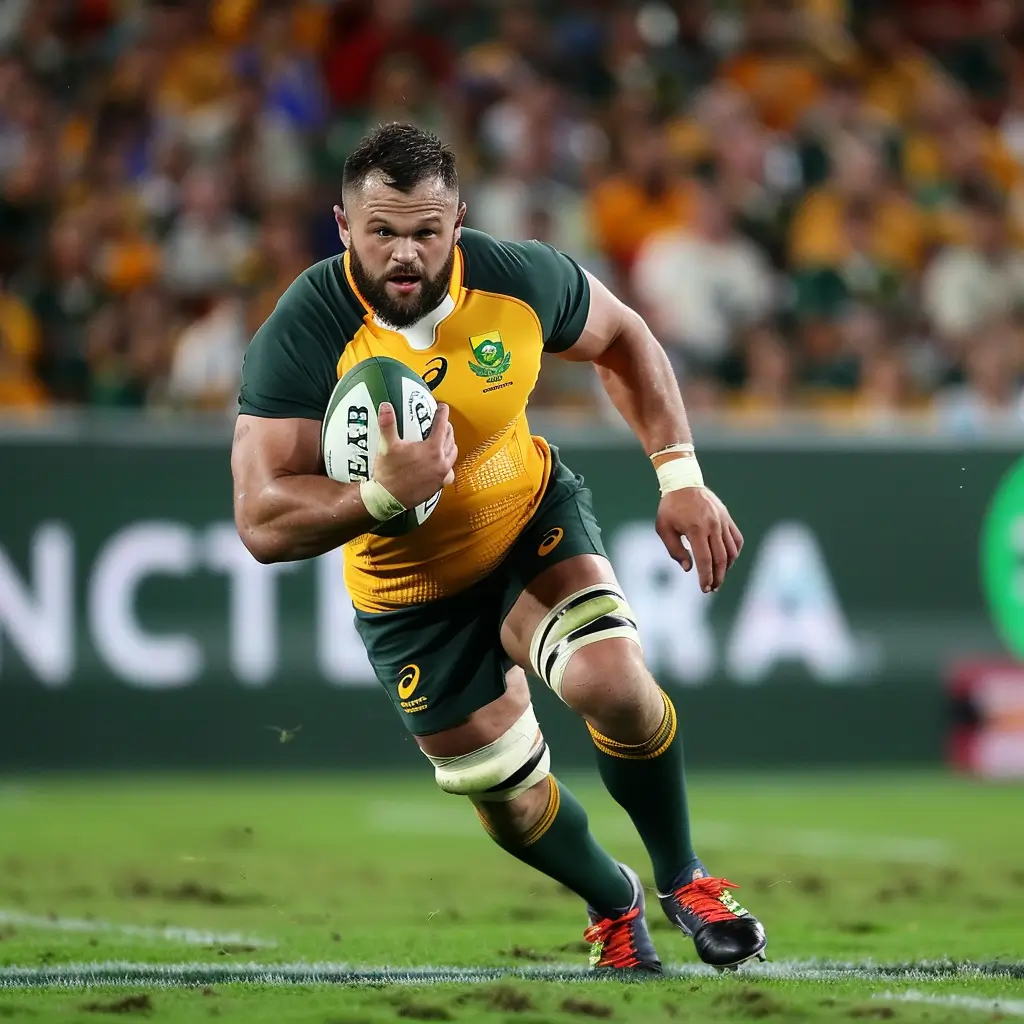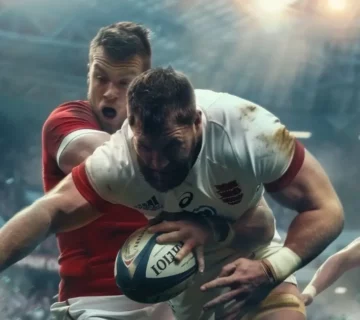The recent clash between South Africa vs Australia at Optus Stadium in Perth delivered another chapter in one of rugby’s most storied rivalries. Despite the Wallabies’ determination to bounce back from their previous defeat, the Springboks’ dominance continued, securing a 30-12 victory in a rain-soaked encounter.
South Africa vs Australia Game of Grit and Determination
The match kicked off under challenging conditions. Rain pouring down throughout the game turned the pitch into a slippery battlefield. From the start, it was clear that both teams would need to rely on tactical kicking and strong defensive play rather than free-flowing, expansive rugby.
In their previous meeting, Australia, stinging from a heavy 33-7 loss, looked to start strong. Noah Lolesio, Australia’s fly-half, put the Wallabies on the scoreboard early with a penalty three minutes into the game. The Wallabies were determined to set the tone early, but the Springboks, renowned for their physicality and tactical acumen, quickly adapted to the wet conditions.
Critical Moments in the First Half
South Africa’s first breakthrough came in the 17th minute, courtesy of Aphelele Fassi. After a handling error from Hunter Paisami, the Springboks launched a counter-attack. A well-placed grubber kick by Makazole Mapimpi allowed Fassi to outpace Australia’s Andrew Kellaway, scoring the match’s first try. Although the conversion was missed, South Africa took an 8-3 lead.
The Wallabies responded with another penalty from Lolesio, narrowing the gap to 8-6. However, the Springboks extended their lead again with a penalty from Sacha Feinberg-Mngomezulu, leaving the score at 11-9 in favor of South Africa by halftime. Australia struggled to capitalize on its few opportunities despite its efforts, often hindered by challenging conditions and a staunch South African defense.
Springboks’ Second-Half Dominance
The second half saw South Africa increase their physicality, mainly through their forward pack. The Springboks’ rolling maul, a hallmark of their strategy, proved too much for the Wallabies to handle. Four minutes after the restart, Marco van Staden powered over the line from a driving maul, extending South Africa’s lead to 18-9.
Although Lolesio managed to add another penalty, bringing the Wallabies closer at 18-12, Australia’s inability to break through the Springbok defense became more apparent as the game progressed. The Springboks, sensing victory, shifted gears and brought on their “bomb squad” of replacements to maintain the pressure.
Malcolm Marx, a thorn in Australia’s side all game, crossed the line twice in the latter stages, both times from dominant driving mauls. His tries sealed the game for South Africa, leaving Australia with little hope of mounting a comeback. The final scoreline of 30-12 reflected the Springboks’ superiority in tactics and execution.
Tactical Adjustments and Player Performances
One of the critical narratives of the match was the tactical battle between the two teams. Under coach Joe Schmidt, the Wallabies tried to adapt to the wet conditions by focusing on set-piece stability and tactical kicking. However, South Africa’s superior execution, especially in the mauls and the breakdown, made the difference.
For Australia, Noah Lolesio had a mixed performance. While his kicking kept the Wallabies in the game, his handling errors in crucial moments allowed the Springboks to regain momentum. On the other hand, South Africa’s forward pack, led by Pieter-Steph du Toit and Marco van Staden, dominated the physical exchanges, setting the platform for their victory.
Max Jorgensen, making his debut for Australia, showed glimpses of promise with his pace and enthusiasm, but he, too, was stifled by the Springbok defense and the slippery conditions.
Looking Ahead
The win solidified South Africa’s position in the Rugby Championship standings, maintaining their unbeaten record. The result was another tough pill for Australia as they continue to search for consistency and cohesion ahead of upcoming matches.
The Wallabies must regroup quickly as they prepare to face Argentina, while the Springboks will focus on their next challenge against New Zealand. Both teams will take valuable lessons from this match, but for now, the Springboks have again proven why they are one of the best teams in world rugby.



No comment